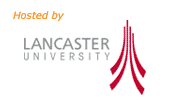Critical Mobilities Research
If invoking the global at the turn of the 21st century is to draw attention to the speed and intensity of interconnections among people and places, the Mediterranean is paradigmatic of this transnational order increasingly and unevenly traversed by money, people, objects, images and ideas. To name an example in the realm of maritime trade and transport, the Mediterranean Sea accounts for only 0.7 per cent of the world’s seas and yet handles 30% of maritime trade traffic and 25% of hydrocarbon traffic. Guarded by the US Sixth Fleet for its geopolitical and geo-economic significance, the most militarised sea in the world is witness to 20% of the world’s traffic in leisure cruises and receives 30% of the world’s international tourists. In this sea of contrasts, the route from the Bosphorous to Gibraltar stands as a veritable economic rift, a line between the greatest regional wealth differences in the world, and the scenario for tragic migration passages to Europe from the lands of the most dispossessed. As in other moments of its long history, at the turn of the new millenium the Mediterranean continues to be a mobile space, a space in transition that plays a growing strategic role in the gravitational movements of globalisation from East to West, from South to North and viceversa.
Social sciences are focusing on these processes of increasing and uneven interconnectivity through new conceptual frameworks and methodologies. An issue of growing interest is how social life gains expression through the movement of people, things, ideas, and institutions across places and nations. Yet, while dominant globalist projects are fuelled by dreams of even, unrestricted circulation, critical mobilities research pays attention to how such movements are made possible and meaningful and their role in creating inequalities. Of special concern is the institutional and material infrastructure of movement and the economic and political conditions that encourage or inhibit circulation. Circulation is as much about flows as it is about the infrastructure channelling these flows. Mobilities involve what has been termed 'material worlds', a heterogeneous assamblage of bodies, technologies, texts, architectures, affects, etc. through which places are produced and re-produced. Indeed, wherever we find flows we find place-making processes; wherever we find flows we find processes of de- and re-territorialization and de- and re-scaling. Mobilities research does not just seek to account for the changing scale and intensity of interconnections but calls for a fundamental revision of the ways in which social phenomena has historically been examined.
Fernand Braudel's magisterial The Mediterranean is a wonderful early precedent in the study of social and economic life through a focus on mobilities. Braudel's work is a source of inspiration to Medmobilities also in the recognition that mobilities research should be a transdisciplinary enterprise informed by a historical sensitivity. Taking the pulse to social life in a mobile world requires a multiplicity of tools ranging from the economic and linguistic to the anthropological and political. It requires also attention to the historicity of flows and the transportation and communication structures that underpin them.
More information about the 'mobilities paradigm' in the journal Mobilities
The links above aim at illustrating salient aspects of the Mediterranean as a space of flows.







| Home | Mission
Statement | About Us | Networks
| Seminar Series | Events
|
| News |
Critical Mobilities | Contacts |

